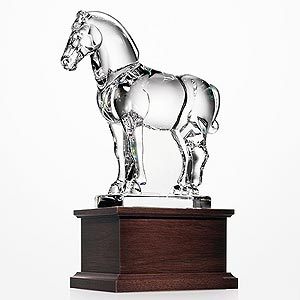Natural Horsemanship vs Traditional Training
By PasoFinoDoll
@PasoFinoDoll (5)
United States
January 9, 2007 9:19am CST
Calling all horse lovers! What are your opinions on the benefits of Natural Horsemanship= Pat Parelli, Chris Cox, Clinton Anderson, vs Traditional Training practices= Lunging, draw reain, tie downs etc? We have two horses a comming 5 year old Paso Fino Mare named Doll and a comming 3 year old Paint gelding named Hoss. I have trained Doll using the Natural methods of Pat and Linda Parelli and then sent her to a traditional trainer with mixed results. The new Paint; Hoss is being started Naturally with some Parelli but we are not sure if we will stick with Parelli. Any Suggestions or comments on colt starting or horse training? All opinions on this subject are welcome.
1 response
@shilpa28k (1737)
• India
11 Jan 07
There's been much controversy over various discussions concerning training methods and whether to be "traditional" or "natural". Most of the traditionalists bring up the fact that not every horse will respond the same to the same training or teaching method. This is true. Very true. Each horse is an individual just as each human is an individual. However, there are some very basic foundations upon which EVERY horse operates. It is these foundational wirings of the horse that regulates the horse's responses. The responses may vary in intensity according to the individual horse's personality and training. However, the bases are the same throughout the species. Let's take a look at them.
BASIC INSTINCT #1
Flee or Fight
The horse is an animal of PREY. This means that other animals eat them. It also means that every part of their bodies and every behavior subsists upon this #1 instinct. From the concavity of their hooves to the whiskers on their muzzles to the regulation of their guts to the physiological makeup of their vision ... every detail is formed and geared towards survival. Because of this when a horse feels nervous or uncomfortable the horse HAS to move its feet. Frontwards, preferably, but if restrained the horse will move in all directions just trying to maintain survival.
BASIC INSTINCT #2
Breeding
The second most hard-wired instinct is to breed in order to continue the survival of the species. Behaviors that are not kicked in with the Flee/Fight instinct will kick in with the Breeding instinct. Geldings playing together in a paddock display specific breeding/courtship/fighting practices. The dropping of a stallion when in the presence of a mare may not be desirable when in a competitive environment however, the stallion is merely physically reacting as nature intends. Horses together will snort and paw and sniff, nip or aggressively attack - all these behaviors arise from the natural breeding behaviors of the wild horse. It is important for the handlers and riders to understand these behaviors in order to modify them or correct them appropriately.
BASIC INSTINCT #3
Social Order
Horses are designed to be herd animals. Within the herds there are very specific levels of "authority" beginning with the alpha mare. The alpha mare's duties are to tend to the safety and well-being of the herd. The stallion's duties are to protect his herd. Within each large herd are smaller herds, each with its own lead mare. However, the smaller herds lead mares always fall in rank behind the alpha. The alpha will signal the entire herd as to when to move, sleep, eat, drink, run for safety, etc. The lead mare's job is to watch for the alpha and then notify her small herd. This is an important instinct to be aware of for the purpose of teaching and training horses. It is the rest of the herd's responsibility to watch the lead mare and follow her anywhere when she gives the signals. This is instinctual behavior that correlates heavily with the instinct for survival. One horse left behind from the rest of the herd will not survive very long in the wild. Predatory animals will surely seek and attack within a short period of time. The worst situation for a horse to be in is that of solitary confinement - being ostracized from the rest of the herd. The horse instinctively knows that it is in severe danger when not part of the social herd.




